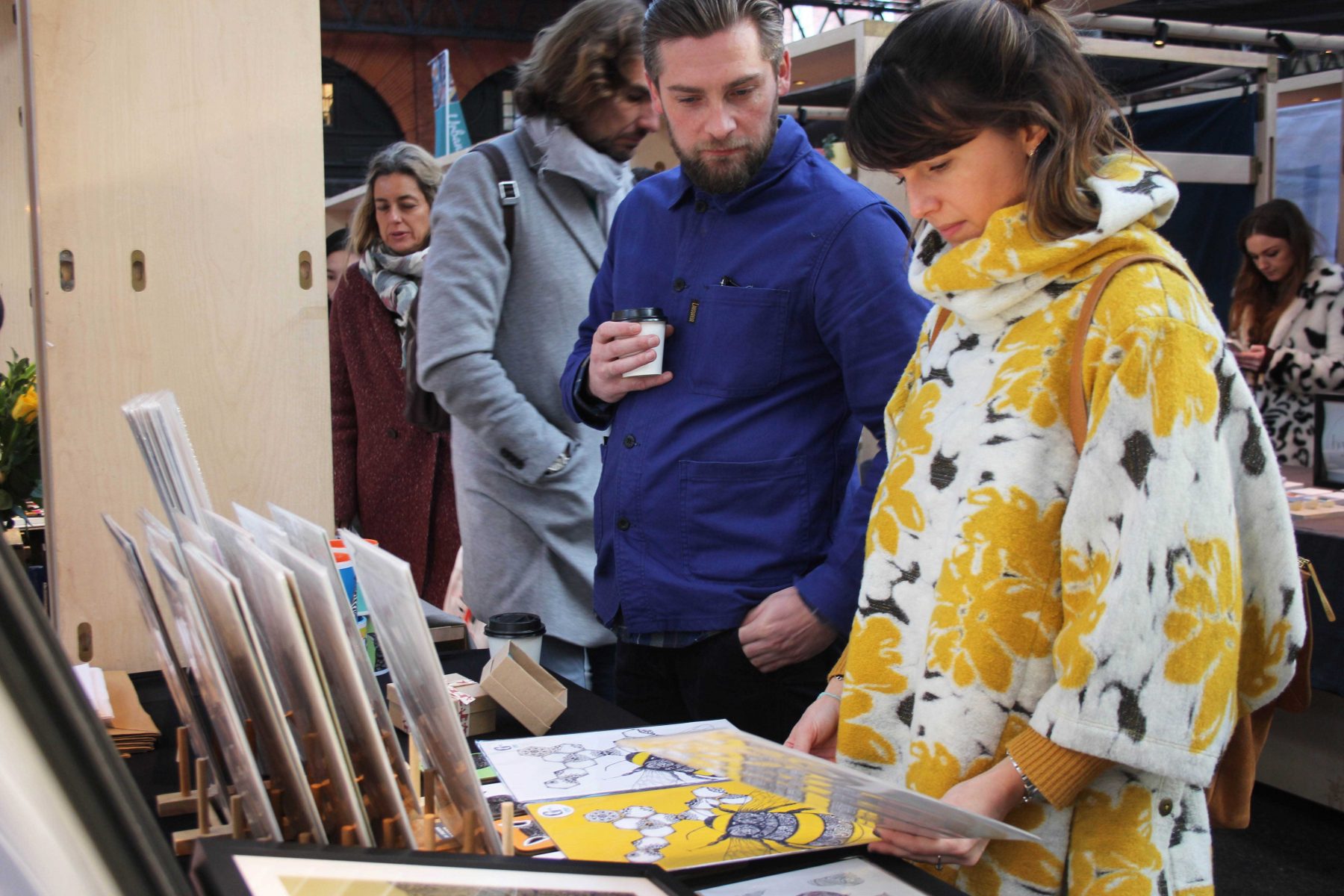A UK Maker’s Guide to Launching Your Creative Dream
If you’ve been dreaming about turning your creative hobby into a thriving business, 2025 could be your year. Whether you’re handcrafting jewellery at the kitchen table or mixing small-batch candles in your spare room, there’s never been a better time to start a handmade business in the UK.
With more people shopping small and supporting independent brands, there’s real demand for thoughtfully made, original products. This guide will walk you through the essential steps to get started — plus how platforms like Urban Makers can help you along the way.
1. Get Clear on Your Product & Audience
Start by defining:
-
What you’re making (jewellery, prints, clothing, ceramics?)
-
What makes it different (sustainable, colourful, personalised?)
-
Who it’s for (eco-conscious shoppers, gift-givers, trend lovers?)
Understanding your niche is key to creating a brand that stands out.
Make a plan – Paradise Weekly Planner By Holchester Designs
2. Build a Small but Mighty Product Range
Start with 5–10 core products you love and believe in. Don’t stress about huge collections — your initial range should be:
-
Consistent in style
-
Well-made and well-priced
-
Photographed clearly (natural light is your friend!)
Remember: simple, thoughtful details go a long way.
3. Set Up the Legal Bits
If you’re selling with the intent to make a profit in the UK, you’ll need to:
-
Register as a sole trader with HMRC or set up a Limited Company
-
Track your income and expenses (a simple spreadsheet works or you can sign up to Xero, QuickBooks or Sage )
-
Look into Public Liability insurance (especially if attending events or making skincare/candles)
-
Understand any safety/testing regulations depending on your product
This might sound scary, but it’s more manageable than it looks. You can get advice from Government backed schemes here
4. Choose Where to Sell Your Handmade Goods
There are several great options for selling handmade items in the UK, including:
- Urban Makers Online Shop – a curated marketplace supporting UK makers
-
Etsy UK – a global handmade marketplace
-
Shopify – for your own branded website
-
Instagram and TikTok Shops – ideal for visual products
-
Craft markets – such as those run by Urban Makers, which have supported small UK businesses since 2015
- Independent shops – The Urban Makers shop is open 6 days a week in east London
Urban Makers hosts makers markets at Old Spitalfields Market and festive markets at the Ecology Pavilion in Mile End, and provides a supportive online platform for independent designers. If you’re ready to share your products with a wider audience, apply to sell with us
Urban Makers Guest Market at Old Spitalfields Market

5. Price for Profit, Not Just Popularity
A common early mistake is underpricing. Your time and skills matter.
Basic formula:
(Materials + Time x Hourly Rate) x Mark-up = Retail Price
Don’t forget to include:
-
Packaging costs
-
Shipping fees
-
Selling platform fees
-
A profit margin that allows you to grow
People are happy to pay more for quality, handmade work — especially when they know the story behind it. We also recommend you have a range of prices to accommodate different budgets and attract a wider variety of customers.
6. Build a Brand That Feels Like You
Your brand includes:
-
A memorable business name
-
A consistent visual style (logo, colours, packaging)
-
A clear tone of voice — friendly? bold? eco-conscious?
Share your story. Show your face. People don’t just buy products — they buy from people they connect with.
Dream Big Print by Karin Akesson Design
7. Promote Your Work Online
You don’t need to be a social media expert, but visibility matters.
Start by:
-
Sharing behind-the-scenes process videos
-
Creating short videos for Instagram Reels or TikTok
-
Building a simple email list (free via Mailchimp or Klaviyo)
-
Collaborating with other makers or markets
-
Applying SEO to your listings (e.g. product tags, keywords etc)
And if you’re selling with Urban Makers, we’ll also help showcase your work to our growing audience of handmade lovers across the UK.
8. Accepting Payments in Person: Using POS Devices for Markets
9. Stay Flexible and Keep Going
The truth is: no handmade business has it all figured out from the start. You’ll learn what works by doing. Track your bestsellers, listen to customer feedback, and don’t be afraid to pivot.
Final Thoughts
Starting a handmade business from scratch in 2025 might feel overwhelming — but you don’t need a warehouse, a big budget, or a perfect plan. You just need a product you believe in, a willingness to learn, and a little bit of courage.
Whether you’re just getting started or looking for a platform to grow with, Urban Makers is here to support you. Since 2015, we’ve been championing small UK businesses through our makers markets, online shop and east London shop — and we’d love to help you take the next step.
Apply to sell with us at urbanmakers.co.uk



